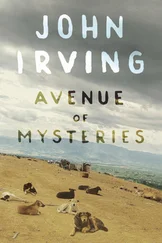“Nice,” I said.
At first all the kids at that birthday party were shy, at least that’s the way I remembered it. This house was so tidy that it left you speechless. How the birthday boy came up with it was unclear, but even before we each had a slice of birthday cake on our plates, he said it. We were sitting across this eye-shaped table from one another, each on a pointy bit. He didn’t really come up with it, he just said it, for no reason. “Joni, Siem’s not your real father.” A triumphant, judgmental expression formed on his round face.
“They’re wonderful children,” Scott’s mother said. She sat down, but got right up again, as though an electric current were running through her chair. She picked up the frame and brought it back into the front room. “And dear, how are your parents? Your mother was so happy here. I was so sorry when you left.”
“We were too,” I said.
“Joni,” Scott said, “Siem is your stepfather.” Maybe because everyone else froze and didn’t say anything, he added: “Why do you always lie?” I opened my eyes as far as they would go, and they slowly filled with tears. “He is too my real father,” I stammered. The other children looked at me, and I could see that they were on Scott’s side.
“Is not,” he said.
“Is too!” They started flowing, slow, heavy tears. My voice sounded strange, canned.
Betty tilted her head like a bird and asked: “And your father? Still a professor, Joni? What a clever one, isn’t he, dear. A remarkable man. A genius — Mal and I said so all the time. Scotty once told us that just after you left your father had won the …” she hesitated for a moment, like she was embarrassed about something, “the Nobel Prize. We only found out years after you’d moved away. The … Nobel Prize for mathematics, wasn’t it?”
“Something like that, yeah. That’s right.”
“How is your father, dear?”
Dead, that’s how. He hanged himself . The genius pulled the plug. Not angry, just disappointed.
“Fine. He’s emeritus now … professor-in-retirement. He and my mother live in the Dordogne.”
“Italy … how lovely .”
“They run a bed-and-breakfast. Siem has started taking saxophone lessons.”
“My goodness, yes …” Betty said, purring contentedly, “I remember your father was always listening to jazz. Nervous music. According to Malcolm.”
There was a sadistic expression on Scotty’s rosy face. “Siem is your step father,” he said. “Your mother said so to my mother.”
They must have been tears of rage, blood of vengeance flowing through my muscles, because I leapt onto the table, on my knees. It was over this very coffee table that I crawled toward that rotten kid, straight through the marzipan birthday cake, knocking over soda glasses, and jumped on him with all my weight. My whipped-cream knees on his fat shoulders, Scotty fell over backward, I was on top of him, clawing and beating him, and screamed, half in English, half in Dutch: “He is too my father! Take it back, you stinking pig! He is too my father. You’re just jealous! You wish you had a father like him!”
Ten seconds, it didn’t take her longer than that, Scott’s mother, this woman, this timid Betty, to intervene, and with a vengeance. She dragged me off her son by my ear.
“God damn it, have you gone crazy?” she screamed, “hateful little brat,” and in front of all those children she dragged me in one tug through to the kitchen, unlatched the back door, and shoved me down the steps, onto the grass.
“Out of my yard,” she said, “and fast. Go tell your parents what you’ve done. Little witch.”
After Tineke had run out of the room behind her elder daughter, up to the bedrooms, and he and Janis had scooped up the cooled-off potato croquettes and Sigerius, tight-lipped, had swept the shards of porcelain into a dustpan, loaded the dishwasher, and drawn all the curtains, after the only human sounds to be heard were their footsteps, their occasional sniffs, the awkward little coughs when they got in each other’s way, and when the sunroom was once again the sunroom and Sigerius had settled into a recliner, headphones over his ears and a whiskey in his hand, and he shuffled upstairs, miserable and suddenly dead tired, when he had undressed in the guest room, swallowed his temazepams in the bathroom at the end of the landing and finally crawled into the wooden three-quarter bed behind the curled-up Joni, the long night of May 20, 2000 began.
“How about you tell me what happened down there,” Aaron said a quarter of an hour later, during which he had been guardedly caressing her shoulders and hips.
She was asleep, or pretended to be. He turned onto his back, the window was an aquarium filled with floating May stars. A few minutes later he got out of bed, tripped over the clothes she had thrown off in her fury, and pushed the window farther open. The outside air was warm and thick; he drew the curtain. He heard her sniffle. “Come on,” he said.
“All right,” she said when he lay down next to her again. “For starters, you should know that Wilbert lived here for a while. About a year.”
“Excuse me?” he asked. “ Where . Here?”
“Here. In the farmhouse. For nearly all of 1989 he lived here. With us.”
It was as though she were informing him that the garbage had to be put out on Thursdays from now on. He switched on the bedside lamp, his hands clammy, and gaped wide-eyed at the back of her blond head. Did he really know nothing about her life? “You’re shitting me,” he said.
“Wish I was.”
He was speechless. After a while he asked: “But why? What was he doing here?”
“Living. You live here now too, right? Sometimes people just need a place to live.”
With the same restrained, infuriating aplomb, in complete contrast to her temper tantrum just now, she started to explain what happened when she and Janis and her parents returned from America. During their first years living on the Tubantia campus they picked up signals that things were going badly, seriously badly, with Wilbert’s mother. She drank. She binge -drank. Gone were the years when Margriet Wijn lived up to her name by putting away a liter of wine a day, no more but no less; she’d moved onto hard liquor, whiskey, jenever, cheap vodka, which she also drank by the liter, lending her surname an optimistic, even nostalgic quality. Margriet’s brother told them she occasionally spent a few months on Texel, locked up in a rehab clinic. “So one day,” said Joni, still with her back to him, “she was dead.”
Not twenty-four hours after Wilbert’s mother had drunk herself to death, by unlucky coincidence on her son’s seventeenth birthday, Menno Wijn had informed his nephew that living together under one roof was getting tiresome. You can say that again, said Wilbert. A few days later, Sigerius watched them lay Margriet’s booze-ravaged body to rest at a Utrecht cemetery. Only at the very end of the coffee reception did he walk over to his son — without any plan, he confessed to Joni years later; in fact he was motivated by the evil looks from his ex-in-laws. In a fit of guilt-ridden fatherliness he assured Wilbert that his door in Enschede was always open, and he should keep it in mind.
That offer did not fall on deaf ears. Two weeks after his mother’s funeral, Wilbert turned up at their farmhouse. Unannounced. Seventeen and vagrant. He didn’t park his motorbike on the road, like a normal person would, but roared around the back with it. He planted the thing in the middle of the clover-grass lawn and himself in front of it, waiting for his new family to step into the April sunshine. Aaron could just see it: the idling off-roader and, in front of it, the future murderer, sprouting, pimply, petulant, in a sleeveless T-shirt from which, he imagined, hung two sinewy limbs — suntanned arms made for unloading Rhine barges, throwing punches, wedging girls against brick walls.
Читать дальше












